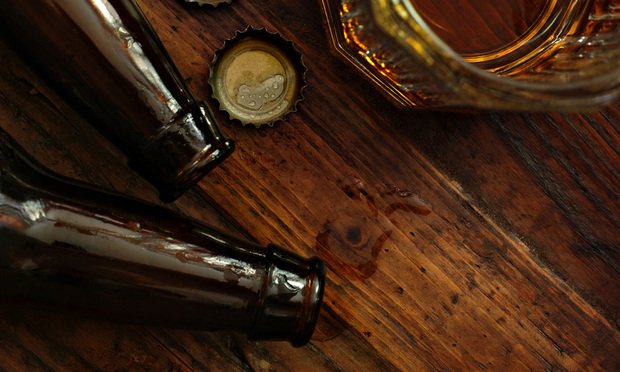 The injured worker testified that the property owner had distributed drugs and that "beer [was] readily available on site." The paramedic who treated Adams at the scene of the accident confirmed Adams had admitted to drinking alcohol before work that day, but testified that Adams had exhibited none of the typical signs of intoxication. (Credit: Bigstock)
The injured worker testified that the property owner had distributed drugs and that "beer [was] readily available on site." The paramedic who treated Adams at the scene of the accident confirmed Adams had admitted to drinking alcohol before work that day, but testified that Adams had exhibited none of the typical signs of intoxication. (Credit: Bigstock)
Virgil Adams fell 30 feet when the supports beneath the ladder he was standing on collapsed; the fall left him totally and permanently disabled. Hospital tests revealed, and Adams freely admitted, that he had both cocaine and alcohol in his system at the time of the accident. Adams also admitted that he had not examined the cribbing before climbing up the ladder. There was no workers' compensation policy in place, so Adams filed a claim with the Workers Compensation Fund, which denied his claim based on the presence of the drugs.
Recommended For You
Want to continue reading?
Become a Free PropertyCasualty360 Digital Reader
Your access to unlimited PropertyCasualty360 content isn’t changing.
Once you are an ALM digital member, you’ll receive:
- Breaking insurance news and analysis, on-site and via our newsletters and custom alerts
- Weekly Insurance Speak podcast featuring exclusive interviews with industry leaders
- Educational webcasts, white papers, and ebooks from industry thought leaders
- Critical converage of the employee benefits and financial advisory markets on our other ALM sites, BenefitsPRO and ThinkAdvisor
Already have an account? Sign In Now
© 2025 ALM Global, LLC, All Rights Reserved. Request academic re-use from www.copyright.com. All other uses, submit a request to [email protected]. For more information visit Asset & Logo Licensing.








